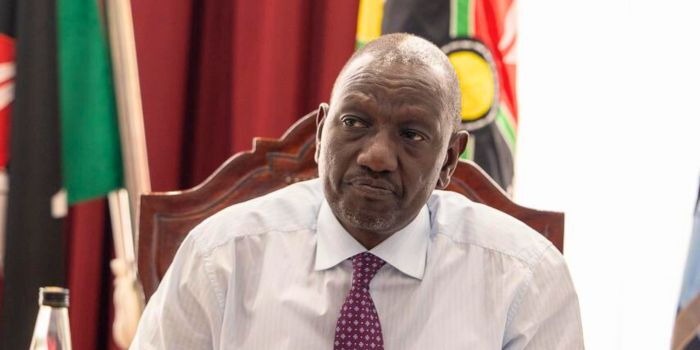Kenya Condemns New York Times Report Linking Ruto’s Government to Alleged Exploitation of Migrant Workers
Prime Cabinet Secretary and Foreign Affairs CS Musalia Mudavadi has strongly dismissed a recent New York Times report suggesting that the Kenya Kwanza administration is involved in activities resembling a “slave trade.” He argued that such claims are false, irresponsible, and intended to mislead the public.
Speaking on Wednesday, November 19, after appearing before the National Assembly, Mudavadi assured lawmakers that the government has put firm structures in place to protect every Kenyan working abroad.
He stressed that any narrative painting the government as neglecting its citizens is inaccurate and unfair.
The controversy follows a New York Times investigative piece published a few days earlier. The report linked several senior government officials and even members of President William Ruto’s family to recruitment agencies accused of sending Kenyans to Saudi Arabia without proper training, preparation, or safety guarantees.
Mudavadi firmly rejected these allegations, stating, “It is misleading, careless, and sensational for any media house to suggest that the Government has ever participated in or tolerated slavery or the exploitation of Kenyans seeking jobs abroad.”
He insisted that the government’s priority remains ensuring the dignity, safety, and well-being of its citizens while strengthening Kenya’s global influence.
During his session with MPs, Mudavadi explained that the government has taken “bold, deliberate, and forward-looking measures” to secure the welfare of Kenyan migrant workers.
One of these actions includes deregistering more than 600 rogue recruitment agencies that had been accused of exploiting job seekers.
He added that any agency seeking a license must now provide insurance coverage for workers at absolutely no cost to them.
He also highlighted the creation of the State Department for Diaspora Affairs—an initiative introduced for the first time in Kenya’s history.
This department, he said, has played a major role in increasing remittances from Kenyans abroad, which rose from Ksh490 billion in 2022 to Ksh650 billion in 2024. The government now aims to push this figure to Ksh1 trillion by 2027.
However, these gains come at a time when Kenya is facing growing criticism. With nearly four million Kenyans living abroad sending back close to Ksh1 trillion annually, labour has now become Kenya’s biggest export—surpassing even tea and coffee.
This has raised questions about whether the country is overly dependent on exporting labour, especially when many migrant workers continue to face challenges.
The New York Times article drew global attention by highlighting the struggles of unwed Kenyan mothers stranded in Saudi Arabia. Many were left homeless in Riyadh due to slow processing and delays at the Kenyan Embassy.
The report further alleged that some recruitment agencies involved in sending Kenyans to the Middle East were benefiting politically connected individuals, claiming that the President’s wife and daughter held significant shares in one such agency.
The investigation also noted that once Kenyan workers face problems in their foreign jobs, the assistance they receive is often limited, despite them being among the lowest-earning domestic workers globally.
Recently, the average minimum pay was raised from about Ksh31,000 to Ksh34,000 per month. But Kenya has expressed concern that demanding even higher wages could push employers in the Middle East to hire from cheaper labour markets such as Ethiopia and Burundi.
Mudavadi maintained that the government is committed to protecting Kenyans wherever they go, and he urged the media to report responsibly, especially on sensitive issues affecting vulnerable citizens.
Join Government Official WhatsApp Channel To Stay Updated On time
https://whatsapp.com/channel/0029VaWT5gSGufImU8R0DO30


